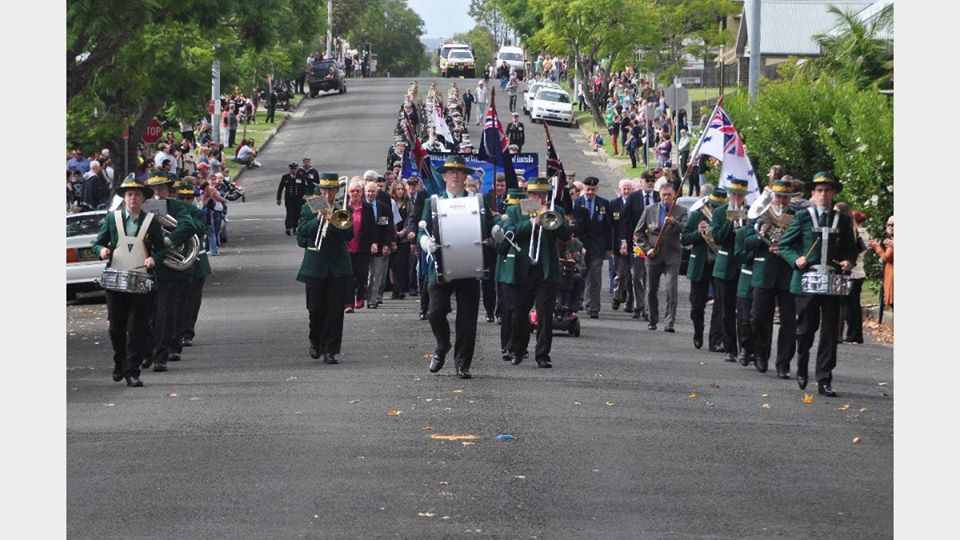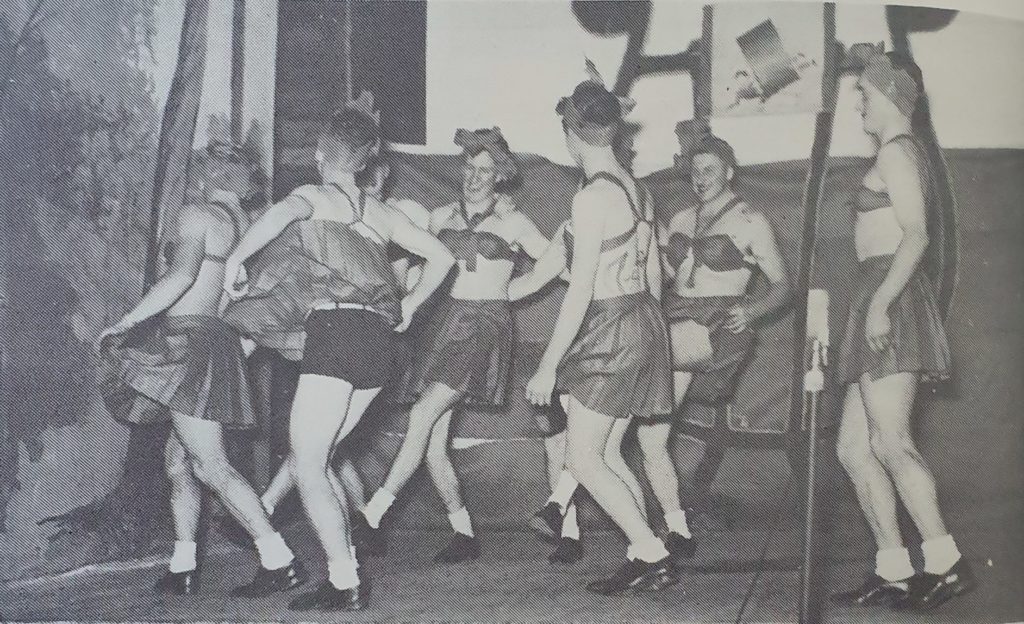Community history is personal history. All history is made up of stories, but the stories of communities, whether they be physical or imagined, occupy a different space than academic books and essays. There is something of a heart to it, to the connections between people that come through far more than the bare facts and statistics.
The Nowra Town Band is one of Australia’s longest continually playing brass bands, coming up on its 140th anniversary in 2020. It’s something I’ve been involved with since childhood; I joined the program that was run at my primary school at the age of 8 and have been playing with them since. The band is open to anyone, regardless of skill level, and is a staple of many local events around the Shoalhaven.

Much of the band’s history is preserved in photographs, newspaper scraps, and two plastic storage boxes full of miscellaneous documents found on top of a filing cabinet in the storeroom. It’s not that no one wants to preserve the history; there’s just a limited amount of time and resources that can be put towards it. The efforts that have gone into the preservation and organisation of these have been impressive, but are reliant on members using their free time to do so. This has resulted in some great work, done by people out of passion rather than obligation, but there’s only so much that can be done.
When visiting home over the break, I used that time to drop in to the band and work out what we wanted to do. I was shown the boxes of records, containing all sorts of things from 1925 onwards- attendance records, building plans, trustee declarations, a mish-mash of records that one of the members had cleaned out and made sure were stored somewhere carefully. She asked if I could start by scanning them, pointing out that if the hall were to burn down, that nearly one hundred years of records would be lost with it.
As we progress further and further into the digital age, it’s becoming easier to preserve these things, but for small volunteer organisations such as the band it can be hard to find the time and resources to do so.
I was also given a copy of a book put together for the centenary in 1980: Nowra Town Band in the City of Shoalhaven. It’s only short, 60 pages, but it goes through the history of the band from the earliest mention in 1880 through to 1980. It gives a timeline of the band, of major events, competitions, rises and falls in membership, but what made it particularly notable to me was how personal it is. The dates and facts are intertwined with anecdotes from members and photographs, not only professional group shots but candids, infusing it with a sense of compassion that is rare in more academic works.

This is what makes working with the band so important to me. It’s personal to me, of course, having basically grown up in the band, but the nature of the community that has formed over the past 140 years is what makes up the essence of its story. The Nowra Town Band is a 140-year passion project that wouldn’t exist without its members and their families going above and beyond, and that’s what makes it special.

Hi Colleen
I have been working on a history of the town band at Taree and came across the Fisk Singers who sang at Taree and at Nowra. I have included below the part Taree’s history that makes it difficult to maintain that ‘Kiama is one of Australia’s longest continually playing brass bands.’ It was certainly a very old band but, like Taree, had breaks in its continuity. Pardon the references still in the text; I haven’t finished the history yet.
‘The Fisk Jubilee Singers were a group from Fisk University in Tennessee, USA, formed after the American Civil War as a way of raising money ‘to endow and keep open the Fisk University for the education, culture, and refinement of the negro race.’ Tuapeka Times (NZ), 15 Feb. 1919 The ‘Jubilee’ in the name of the group referred to the freeing of the slaves after the American Civil War, which hearkened back to the Biblical Old Testament practice of freeing slaves and others after a set number of years. The membership of the group changed as singers finished their studies and were replaced by other singers, all direct descendants of slaves. Over the years the singers had performed in various countries, including New Zealand and Australia, and met with interesting reactions:
When the members of this little band of vocalists first started on their travels they were, it is reported, at times without the money to buy necessary clothing, but in less than three years, so great was their success they had accumulated something like 100,000 dollars. At first, they were driven out of railway waiting rooms because of their colour, but they have been received with honour by the President of the United States, and have sung their slave songs before the Queen of England. SMH, 21 April 1886, p.13, quoting from the Belfast News Letter.
The Fisk Jubilee Singers first visited Australia in June 1886 when they performed to immense crowds at the town hall in Melbourne. … It was some years after that initial tour that the Singers, on visits to country places in Australia, found that poking a little fun at the local town band was well received by audiences. This was because most bands had problems that most town folk were aware of. From as early as 1900 the Fisk Jubilee Singers imitated the local brass band at Echuca on the Murray which produced ‘much laughter in the audience.’ Riverine Herald, 5 Feb. 1900, p.2 Two years later, at Colac, also in Victoria, they sang a glee, probably an all-male item, called the ‘Colac Brass Band.’ The Colac audience liked it so much it demanded two encores. Colac Herald, 14 March 1902, p.2 In the same year, similar parodies of bands were performed in the Tasmanian towns of Devonport and Queenstown; and in the following year the Singers imitated the Penrith Brass Band, which the local newspaper called ‘a tip-top item.’ Nepean Times, 14 March 1903, p.2 The Fisk Jubilee Singers also performed a humorous song in which they scolded Nowra townsfolk for failing to resuscitate their brass band, thus denying the Singers the opportunity of lampooning the band. Shoalhaven News, 10 March 1903, p.2